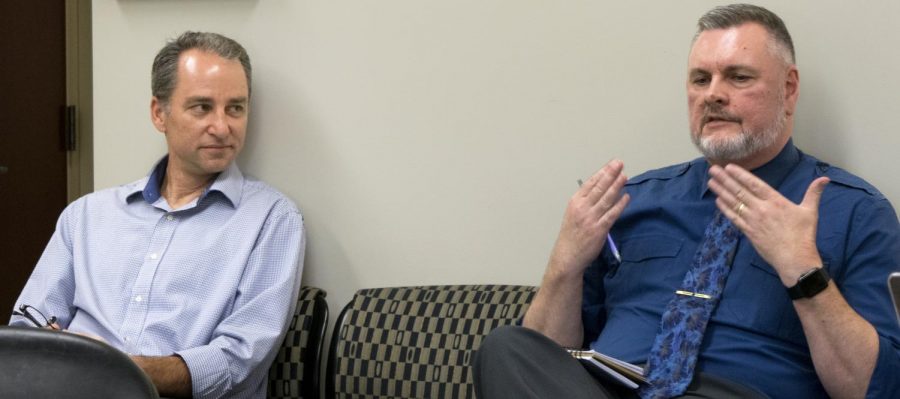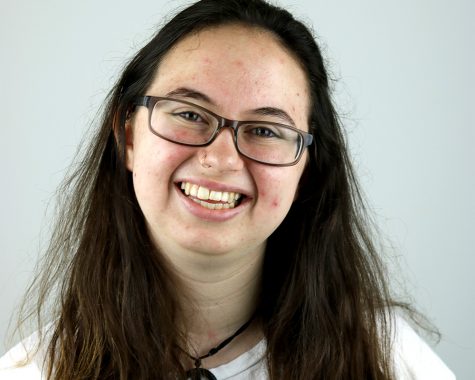Shared governance talks continue at CAA meeting
Jeff Stowell, a psychology professor and the faculty senate vice-chair, and Todd Bruns, scholarly communication librarian and institutional repository director as well as Faculty Senate chair, visited the Council on Academic Affairs meeting Thursday. They joined the council on their discussion on shared governance.
September 13, 2018
The Council on Academic Affairs discussed bylaw changes and shared governance at their meeting on Thursday.
Shared governance, which has been discussed in length at various committees, is being given so much attention because of the Higher Learning Commission.
When the HLC last reviewed Eastern, it made a note on how committees on campus, such as the CAA and the Faculty Senate, need to communicate more effectively.
This has lead to a localized discussion in the Faculty Senate about their role on campus and the role they should be playing in campus committees.
Jeff Stowell, the Faculty Senate vice-chair and a psychology professor who has been leading many shared governance discussions, said figuring out the senate’s role throughout campus is more complicated than it might seem.
“The constitution of the Faculty Senate… specifies the existence of the major curriculum committees on campus. It states that they are committees of the faculty, but it does not say of the Faculty Senate,” Stowell said. “I think that’s one thing we’re trying to sort out.”
The first shared governance proposal Stowell presented to the CAA at its first meeting on Aug. 23 included more senate oversight.
It involved having a senate liaison attend CAA meetings, as well as giving the senate approval rights over new programs requiring Illinois Board of Higher Education Approval after the program proposal had passed through the council.
Many council members said they saw problems with this model, including Marita Gronnvoll, the CAA chair and the communication studies associate chair.
Gronnvoll said at the Aug. 23 meeting she did not see a need for an extra layer in the approval process.
“It seems like we’re trying to solve a problem that we don’t have. Because I could see if CAA was completely populated by people who had been appointed by the Provost, or by the VPA’s office, but we’re all elected,” Gronnvoll said. “Most people have been here for years serving on CAA, and are very familiar with the curriculum, so I don’t understand.”
Stowell brought the council’s feedback to the Sept. 4 Faculty Senate meeting and many senate members, including economics professor Teshome Abebe, said they agreed with the council’s assessment.
Abebe said the extra step in the approval process was trying to solve a problem that is not currently present on campus.
“What (the senate) is trying to solve is a governance issue, not a curriculum issue,” Abebe said at the Sept. 4 meeting.
At that meeting, it was decided that a new shared governance proposal should be drafted, one that included having a senate member keep up with other committee meetings to report back to the senate and having new proposed programs show up on the senate agenda, much like an executive action shows up on the CAA agenda.
However, council members still shared some concerns over this new proposed model during their Thursday meeting.
The executive actions that appear on the CAA agenda still need to be approved by the council for them to take affect; the council could always stop an executive action or send it back if they feel something needs to be changed.
This means that, if the senate votes to approve this model, new programs would not be officially approved until after going through the senate, which could add up to an extra two weeks to the process.
Rebecca Throneburg, a council member and communication disorders and sciences professor, said she does not see how this would increase communication between organizations on campus.
“I don’t see how program approvals going through Faculty Senate changes or cures what HLC was asking,” she said. “I can see sending these liaisons out and stuff can increase communication, but I still don’t get the rationale of (sending program approvals through the senate).”
Faculty Senate Chair Todd Bruns, who was in attendance at the Thursday council meeting, said the senate has no wish to re-do the work the council does.
“I am not interested personally in what I would call ‘overkill’ in addressing the concerns that (HLC) raised. I personally would, I would need to confer with the other senators, but I would be in favor of just saying ‘we’ll work on better communication’ and then be done,” Bruns said. “When (Stowell) was saying potentially it would just be an executive action that would come to us then it’s done, that seemed like a way to address both concerns (of the HLC and the CAA).”
Stacey Ruholl, a member of the CAA and a kinesiology, sports and recreation professor, suggested just including council minutes in the senate meeting.
Ruholl said that by doing that, the senate can be aware of new program approvals without having the obligation to approve them.
The senate originally planned on having a vote on the shared governance model that was proposed at last Tuesday’s Faculty Senate meeting.
At the CAA meeting, the senate invited council members to come to the next senate meeting on Sept. 18 to have further discussions on what shared governance will look like on Eastern’s campus before the proposed vote will take place.
The council, which has been working under suspended bylaws for over a semester now, also discussed changes, which are to be made before the laws are to be reinstated.
An organizational change, following the reorganization of colleges on campus, will be in the new set of bylaws.
CAA would still have eight members, but now one would come from every college, with the exception of the College of Liberal Arts and Sciences that would have two representatives and would include three at-large positions.
This is how CAA is currently organized, and no change in members will have to occur when the laws are reinstated.
Other changes included wording changes and correction of misspelled words.
Until the discussion about the general education committee can be had, which cannot happen until the College of Liberal Arts and Sciences, which currently houses 90 percent of Eastern’s general education programs, settles on organization and committee structures, an official change of bylaws will not be voted on.
Brooke Schwartz can be reached at 581-2812 or at bsschwartz@eiu.edu.





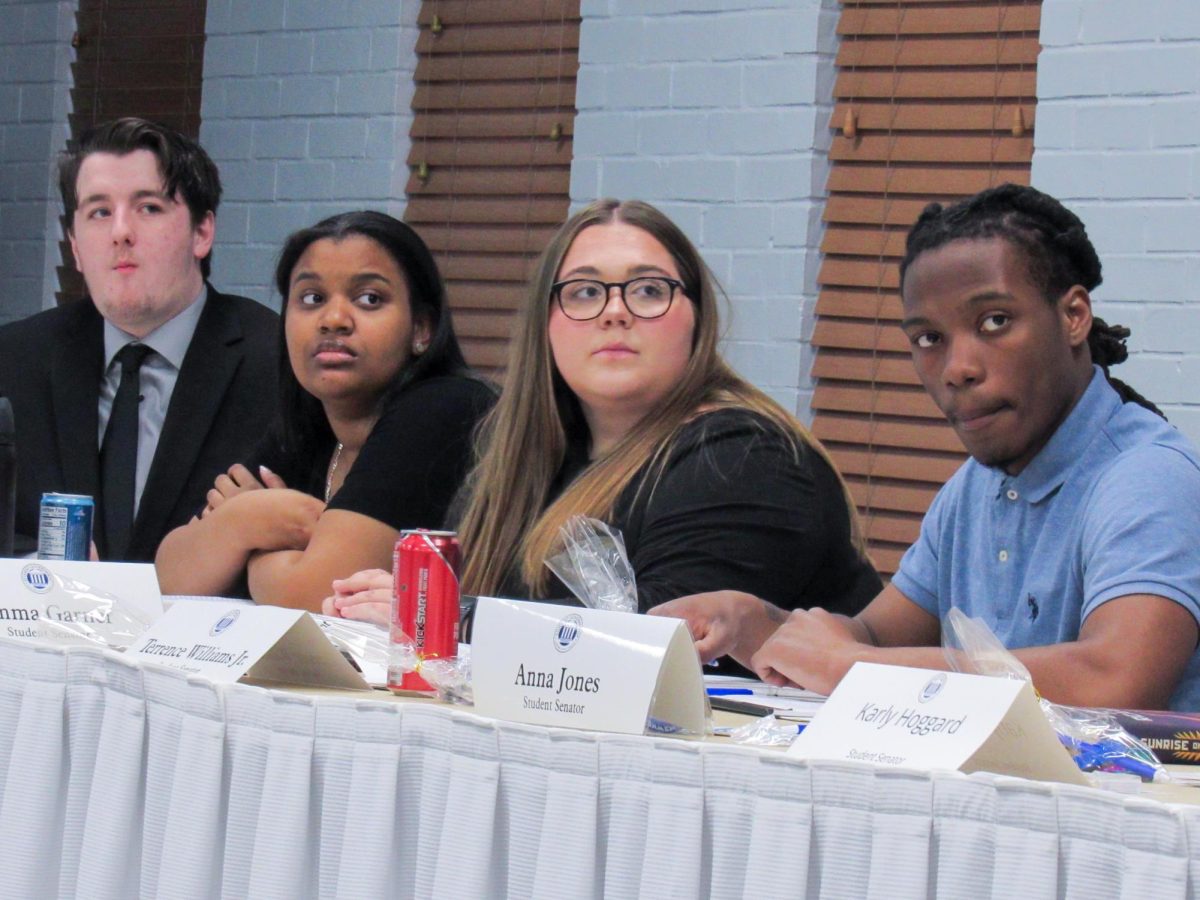
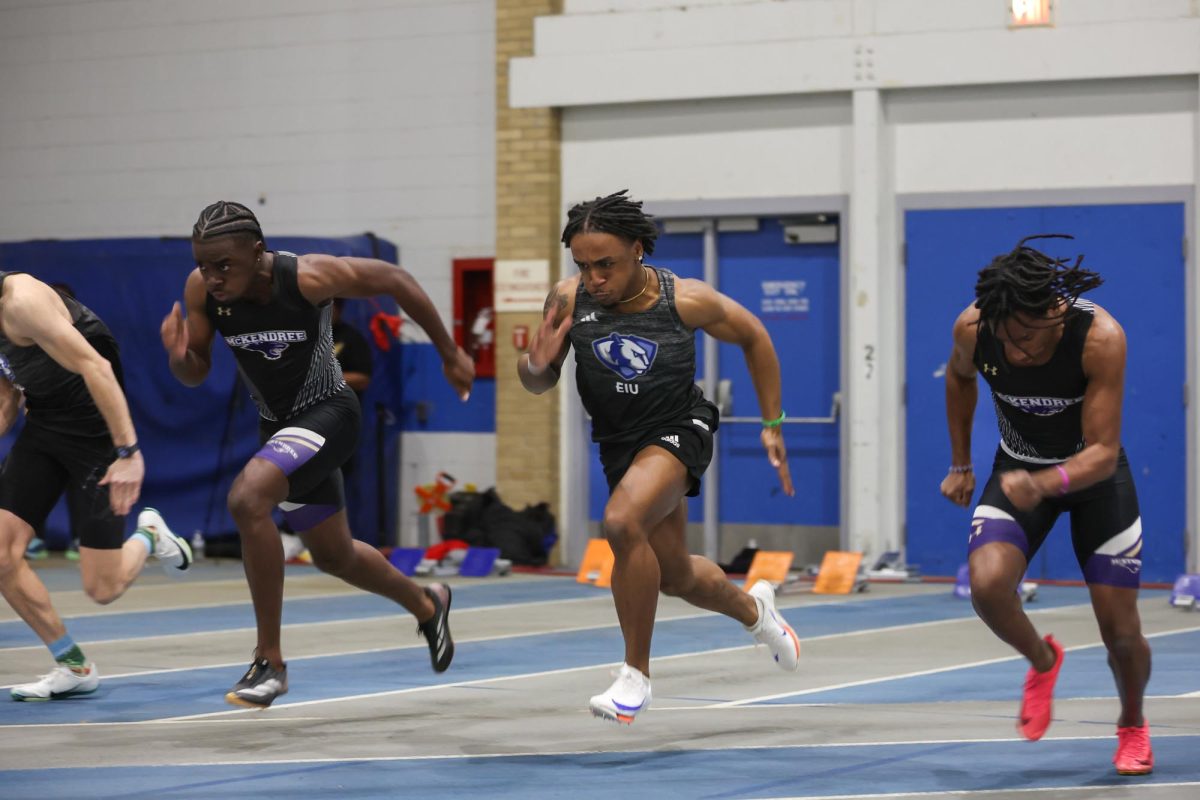




![[Thumbnail Edition] Junior right-handed Pitcher Lukas Touma catches at the game against Bradley University Tuesday](https://www.dailyeasternnews.com/wp-content/uploads/2025/03/MBSN_14_O-e1743293284377-1200x670.jpg)

![[Thumbnail Edition] Eastern Illinois University baseball senior utility player Tyler Castro fields a ground ball during the team's first intrasquad scrimmage of the season on Jan. 31.](https://www.dailyeasternnews.com/wp-content/uploads/2025/03/BB_01_O-e1742874760130-1-e1742907504722-1200x911.jpg)
![[Thumbnail Edition] Senior Foward Macy McGlone, getsw the ball and gets the point during the first half of the game aginst Western Illinois University,, Eastern Illinois University Lost to Western Illinois University Thursday March 6 20205, 78-75 EIU lost making it the end of their season](https://www.dailyeasternnews.com/wp-content/uploads/2025/03/WBB_OVC_03_O-1-e1743361637111-1200x614.jpg)





















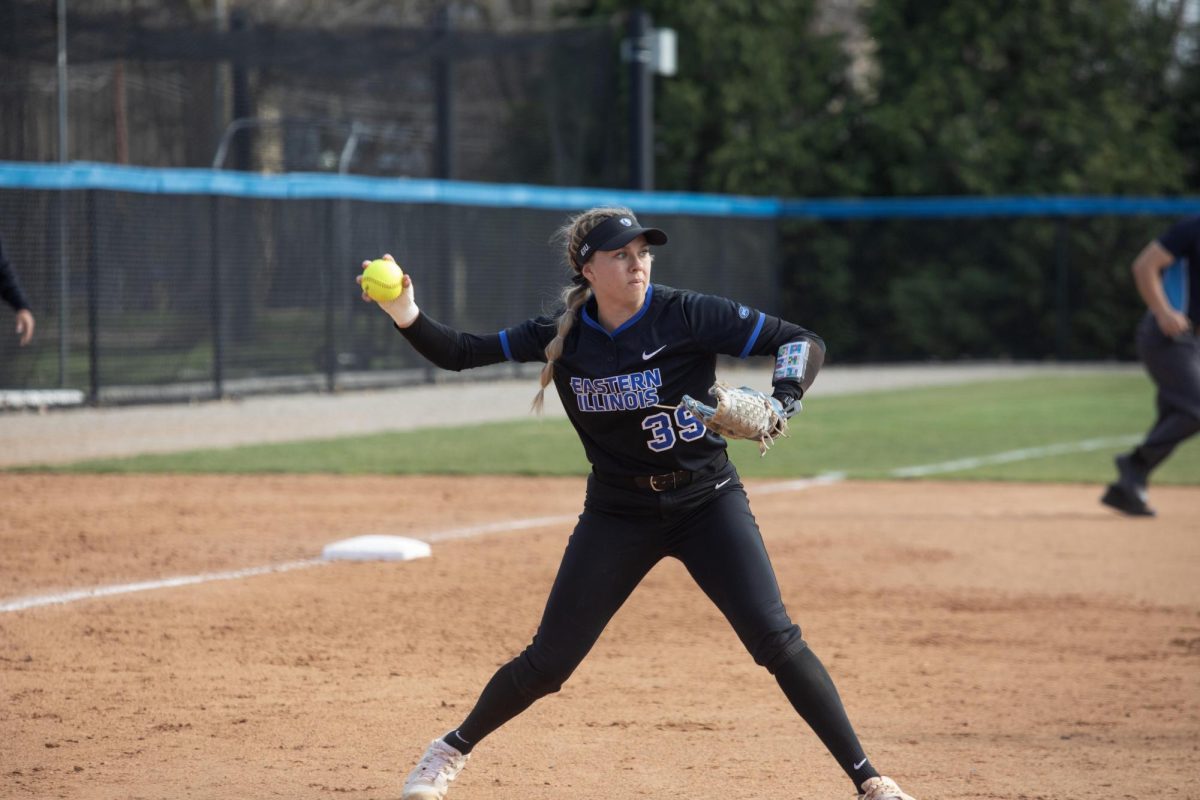















![The Weeklings lead guitarist John Merjave [Left] and guitarist Bob Burger [Right] perform "I Am the Walrus" at The Weeklings Beatles Bash concert in the Dvorak Concert Hall on Saturday.](https://www.dailyeasternnews.com/wp-content/uploads/2025/03/WL_01_O-1200x900.jpg)
![The team listens as its captain Patience Cox [Number 25] lectures to them about what's appropriate to talk about through practice during "The Wolves" on Thursday, March 6, in the Black Box Theatre in the Doudna Fine Arts Center in Charleston, Ill.](https://www.dailyeasternnews.com/wp-content/uploads/2025/03/WolvesPre-12-1200x800.jpg)
















